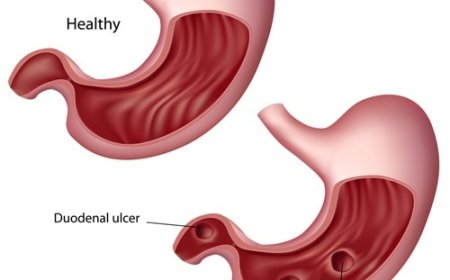Hashimoto's Disease

Introduction:
Hashimoto's Disease is a common condition affecting the thyroid gland, a small butterfly-shaped organ located in the front of the neck. In India, just like in other parts of the world, many people suffer from this condition. Let's explore what Hashimoto's Disease is, its symptoms, types, causes, risk factors, diagnostic tests, treatments, and how it can be prevented.
Signs and Symptoms:
Hashimoto's Disease often develops slowly, and the symptoms might not be noticeable at first. However, over time, the disease can lead to an underactive thyroid, called hypothyroidism. Some common symptoms of Hashimoto's Disease include:
- Fatigue and weakness: Feeling tired all the time, even after a good night's sleep.
- Weight gain: Gaining weight without any significant changes in diet or activity level.
- Cold intolerance: Feeling excessively cold, especially in the hands and feet.
- Dry skin and hair: Skin becoming dry and rough, and hair becoming thin and brittle.
- Muscle aches and stiffness: Experiencing pain and stiffness in the muscles.
- Mood changes: Feeling sad or depressed without any apparent reason.
- Memory problems: Difficulty in remembering things and concentrating.
- Constipation: Having difficulty in passing stools regularly.
What Is Hashimoto's Disease?
Hashimoto's Disease is an autoimmune disorder. It happens when the immune system, which normally protects our body from harmful invaders, mistakenly attacks the thyroid gland. The immune system produces antibodies that damage the thyroid, leading to lower hormone production. These hormones are essential for the body's growth, metabolism, and overall well-being.
How Is Hashimoto's Disease Classified?
Hashimoto's Disease falls under the category of autoimmune diseases. Autoimmune diseases occur when the body's immune system starts attacking its own healthy cells and tissues.
Causes and Triggers:
The exact cause of Hashimoto's Disease is not fully understood, but several factors can contribute to its development:
- Genetic factors: If someone in your family has Hashimoto's Disease or other autoimmune conditions, you might have a higher risk.
- Environmental triggers: Certain environmental factors, such as exposure to excessive iodine or radiation, may play a role in triggering the disease.
Risk Factors with examples:
Certain factors can increase the risk of developing Hashimoto's Disease. For example:
- Gender: Women are more likely to develop this condition than men.
- Age: Hashimoto's Disease often occurs between the ages of 30 and 60.
- Family history: If a close family member has the disease, the risk may be higher.
- Other autoimmune diseases: People with other autoimmune conditions, like type 1 diabetes or celiac disease, are at a higher risk.
Types of Hashimoto's Disease:
There are two main types of Hashimoto's Disease:
- Silent Hashimoto's Thyroiditis: In this type, the inflammation of the thyroid gland happens without noticeable symptoms.
- Symptomatic Hashimoto's Thyroiditis: This type causes the typical symptoms of hypothyroidism, such as fatigue, weight gain, and cold intolerance.
Diagnostic Tests and Treatments:
To diagnose Hashimoto's Disease, doctors use various tests:
-
Blood tests: These check for thyroid hormones (T3 and T4) and thyroid-stimulating hormone (TSH) levels in the blood. High TSH levels and low T3 and T4 levels indicate an underactive thyroid.
-
Antibody tests: These check for the presence of specific antibodies that attack the thyroid gland. The most common antibodies are anti-thyroid peroxidase (TPO) and anti-thyroglobulin (TG) antibodies.
-
Ultrasound: An ultrasound of the thyroid gland can show its size, texture, and any abnormal nodules.
Treatments for Hashimoto's Disease aim to restore thyroid hormone levels and alleviate symptoms:
-
Thyroid hormone replacement therapy: Taking synthetic thyroid hormones, like levothyroxine, can help replace the hormones the thyroid gland is not producing enough of.
-
Lifestyle changes: A healthy diet, regular exercise, and enough sleep can support thyroid function and overall well-being.
-
Regular check-ups: Regular visits to the doctor can help monitor thyroid hormone levels and adjust medication if needed.
Complications of Hashimoto's Disease and Prevention Techniques:
If left untreated, Hashimoto's Disease can lead to several complications, such as:
- Goiter: Enlargement of the thyroid gland due to constant stimulation by the immune system.
- Heart problems: Untreated hypothyroidism can increase the risk of heart disease.
- Mental health issues: Severe hypothyroidism can lead to depression and cognitive problems.
Prevention of Hashimoto's Disease is not entirely possible, but some general measures can help maintain thyroid health and reduce the risk of complications:
-
A balanced diet: Eating a variety of fruits, vegetables, whole grains, and lean proteins supports overall health, including thyroid function.
-
Protecting the thyroid: Avoiding excessive radiation exposure and using iodized salt in moderation can help protect the thyroid gland.
Hashimoto's Disease is a common autoimmune condition affecting the thyroid gland. Understanding its signs, symptoms, types, causes, risk factors, diagnostic tests, and treatments can help individuals manage their condition effectively and improve their quality of life. Early detection and appropriate management can make a significant difference in the well-being of those living with Hashimoto's Disease. Remember, it's essential to work closely with healthcare professionals for the best possible outcomes.
What's Your Reaction?
 Like
0
Like
0
 Dislike
0
Dislike
0
 Love
0
Love
0
 Funny
0
Funny
0
 Angry
0
Angry
0
 Sad
0
Sad
0
 Wow
0
Wow
0







































































